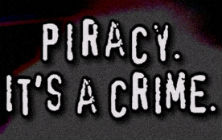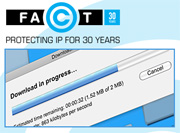 Last week’s leak of The Expendables 3 was a pretty big event in the piracy calendar and as TF explained to inquiring reporters, that is only achieved by getting the right mix of ingredients.
Last week’s leak of The Expendables 3 was a pretty big event in the piracy calendar and as TF explained to inquiring reporters, that is only achieved by getting the right mix of ingredients.
First and foremost, the movie was completely unreleased meaning that private screenings aside, it had never hit a theater anywhere in the world. Getting a copy of a movie at this stage is very rare indeed. Secondly, the quality of the leaked DVD was very good indeed.
Third, and we touched on this earlier, are the risks involved in becoming part of the online distribution mechanism for something like this. Potentially unfinished copies of yet-to-be-released flicks can be a very serious matter indeed, with custodial sentences available to the authorities.
And yet this week, David Pierce, Assistant Managing Editor at The Verge, wrote an article in which he admitted torrenting The Expendables 3 via The Pirate Bay.
Pirate confessions – uncut

“The Expendables 3 comes out August 15th in thousands of theaters across America. I watched it Friday afternoon on my MacBook Air on a packed train from New York City to middle-of-nowhere Connecticut. I watched it again on the ride back. And I’m already counting down the days until I can see it in IMAX,” he wrote.
Pierce’s article, and it’s a decent read, talks about how the movie really needs to be seen on the big screen. It’s a journey into why piracy can act as promotion and how the small screen experience rarely compensates for seeing this kind of movie in the “big show” setting.
Pierce is a great salesman and makes a good case but that doesn’t alter the fact that he just admitted to committing what the authorities see as a pretty serious crime.
The Family Entertainment and Copyright Act of 2005 refers to it as “the distribution of a work being prepared for commercial distribution, by making it available on a computer network accessible to members of the public, if such person knew or should have known that the work was intended for commercial distribution.”
The term “making it available” refers to uploading and although one would like to think that punishments would be reserved only for initial leakers (if anyone), the legislation fails to specify. It seems that merely downloading and sharing the movie using BitTorrent could be enough to render a user criminally liable, as this CNET article from 2005 explains.

So with the risks as they are, why would Pierce put his neck on the line?
Obviously, he wanted to draw attention to the “big screen” points mentioned above and also appreciates plenty of readers. It’s also possible he just wasn’t aware of the significance of the offense. Sadly, our email to Pierce earlier in the week went unanswered so we can’t say for sure.
But here’s the thing.
There can be few people in the public eye, journalists included, who would admit to stealing clothes from a Paris fashion show in order to promote Versace’s consumer lines when they come out next season.
 And if we wrote a piece about how we liberated a Honda Type R prototype from the Geneva Motor Show in order to boost sales ahead of its consumer release next year, we’d be decried as Grand Theft Auto’ists in need of discipline.
And if we wrote a piece about how we liberated a Honda Type R prototype from the Geneva Motor Show in order to boost sales ahead of its consumer release next year, we’d be decried as Grand Theft Auto’ists in need of discipline.
What this seems to show is that in spite of a decade-and-a-half’s worth of “piracy is theft” propaganda, educated and eloquent people such as David Pierce still believe that it is not, to the point where pretty serious IP crimes can be confessed to in public.
At the very least, the general perception is that torrenting The Expendables 3 is morally detached from picking up someone’s real-life property and heading for the hills. And none of us would admit to the latter, would we?
Hollywood and the record labels will be furious that this mentality persists after years of promoting the term “intellectual property” and while Lionsgate appear to have picked their initial targets (and the FBI will go after the initial leakers), the reality is that despite the potential for years in jail, it’s extremely unlikely the feds will be turning up at the offices of The Verge to collar Pierce. Nor will they knock on the doors of an estimated two million other Expendables pirates either.
And everyone knows it.
As a result, what we have here is a crazy confession brave article from Pierce which underlines that good movies are meant to be seen properly and that people who pirate do go on to become customers if the product is right. And, furthermore, those customers promote that content to their peers, such as the guy on the train who looked over Pierce’s shoulder when he was viewing his pirate booty.
“He won’t be the last person I tell to go see The Expendables 3 when it hits theaters in August,” Pierce wrote. “And I’ll be there with them, opening night. I know the setlist now, I know all the songs by heart, but I still want to see the show.”
Pierce’s initial piracy was illegal, no doubt, but when all is said and done (especially considering his intent to promote and invest in the movie) it hardly feels worthy of a stay in the slammer. I venture that the majority would agree – and so the cycle continues.
Source: TorrentFreak, for the latest info on copyright, file-sharing and anonymous VPN services.

 A long-running legal case involving an Austrian anti-piracy group, a local ISP, and both the Supreme Court and European Court of Justice came to an end this July.
A long-running legal case involving an Austrian anti-piracy group, a local ISP, and both the Supreme Court and European Court of Justice came to an end this July.







